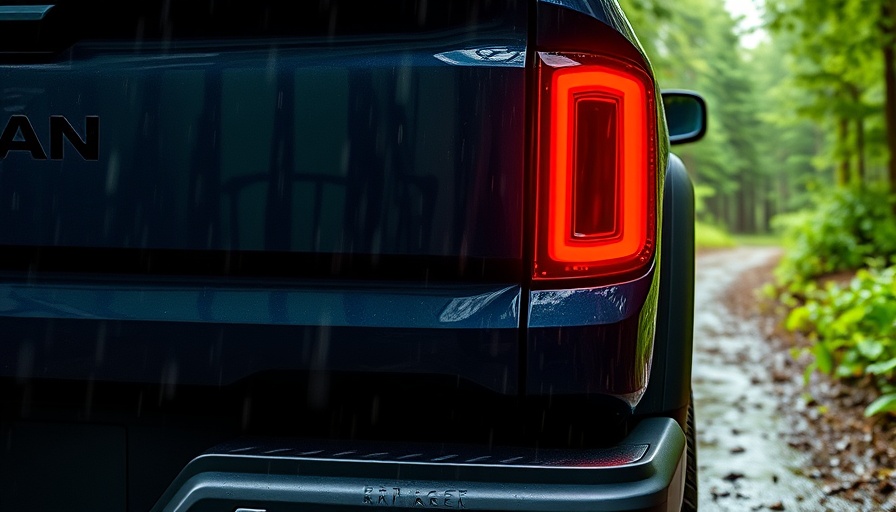
The Push for Direct Sales: Rivian’s Fight in Ohio
Rivian, a pioneer in the electric vehicle (EV) sector, is challenging the status quo in Ohio with a recent lawsuit aimed at securing the right to sell its vehicles directly to consumers. This legal battle highlights an ongoing struggle between innovative automotive startups and the well-established dealership network, revealing deeper tensions about consumer choice and business competition in a rapidly evolving marketplace.
Understanding the Legal Landscape
Rivian's lawsuit against Ohio’s Bureau of Motor Vehicles underscores the complexities of auto sales regulations and the impact of lobbying efforts on local laws. The company argues that a law enacted in 2014, which prevents new manufacturers from obtaining dealership licenses—a law effectively crafted under the lobbying influence of the Ohio Automobile Dealers Association (OADA)—unfairly hinders competition. Rivian's complaint points out that this law has created a loophole favorable to Tesla, which has been able to directly sell its vehicles in Ohio since 2013.
The Implications for Ohio Consumers
This legal battle is not just about Rivian; it raises fundamental questions about consumer choice in Ohio. Currently, Ohioans keen on purchasing a Rivian vehicle must buy it from another state where direct sales are permitted, adding unnecessary obstacles to ownership. Rivian’s chief administrative officer, Mike Callahan, emphasized that Ohio's restrictions are not just old-fashioned; they are counterproductive to consumer needs by raising costs and limiting market options.
A Broader Context: The Fight for Direct Sales
The issue Rivian faces in Ohio mirrors similar struggles across the country, where traditional automotive dealerships argue that direct-to-consumer sales undermine their businesses and the consumer protections they claim to offer. However, companies like Rivian and Tesla argue that modern consumers expect greater convenience and transparency in their buying experiences. By sidestepping the dealership model, these companies aim to reshape not just how cars are sold, but how customers can interact with their brands directly.
Consumer Rights vs. Dealership Interests
As the battle unfolds, it’s essential to consider the rights of consumers in this equation. The automotive retail landscape is changing, and many consumers now prefer engaging directly with manufacturers, similar to how technology companies sell their products. The push for direct sales aligns with broader technological trends and consumer expectations in the digital age. Rivian's argument—that eliminating dealership intermediaries would enhance competition and lower prices for consumers—could resonate strongly in a society increasingly geared toward immediacy and direct engagement.
Future Trends: The Electric Vehicle Market in Ohio
The outcome of this lawsuit could have ripple effects on Ohio's evolving EV market. As state laws adapt to new technologies and consumer demands, Ohio faces a coordinating challenge: balancing the established dealership network with promoting innovative businesses that are crucial for the state's economic future. Rivian's case may set a precedent not only for Ohio's automotive regulations but also for how states nationwide approach the burgeoning EV market.
A Call for Change
This lawsuit serves as a critical reminder of the importance of advocacy for consumer rights in the evolving automotive landscape. For Central Ohio residents and those invested in the future of automotive technology, staying informed about such developments is essential. As public interest in EVs grows, the demand for clearer, consumer-friendly laws will only intensify.
As representatives from both sides prepare for court, the future of direct sales in Ohio—and potentially across the nation—remains uncertain. Yet, one point is clear: innovation should not be hindered by outdated laws, and consumers deserve more choices in how they purchase vehicles.
Staying updated on Rivian’s legal journey could be pivotal for stakeholders in the automotive sector and local consumers alike. Keep an eye on this case and its developments, as it could change the game for EV sales in the Midwest.
 Add Row
Add Row  Add
Add 




Write A Comment